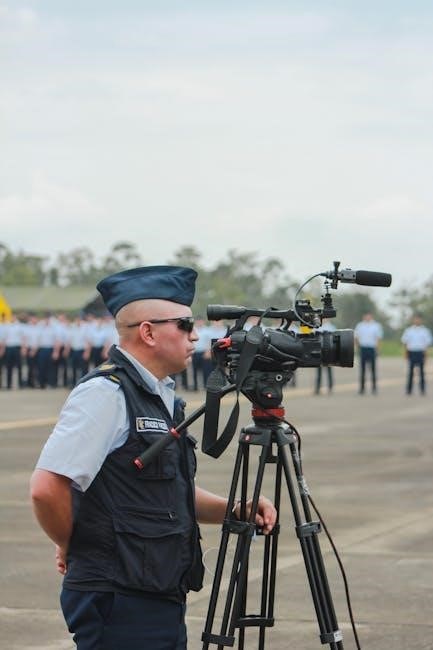
army non commissioned officer guide
The Army Non-Commissioned Officer Guide (FM 7-22.7) serves as a fundamental resource for NCOs, outlining leadership principles, responsibilities, and authoritative guidance to ensure mission success and soldier development;
1.1 Overview of the NCO Guide (FM 7-22.7)
The Army Non-Commissioned Officer Guide (FM 7-22.7) is a critical resource for NCOs, providing detailed guidance on leadership, responsibilities, and authority. It replaces Training Circular 22-6 and serves as a foundational document for NCOs to understand their roles in leading, supervising, and caring for soldiers. The guide emphasizes practical application, ensuring NCOs are equipped to excel in their duties and contribute effectively to mission success. It is an essential tool for professional development and operational excellence.
1.2 Importance of the NCO Creed
The NCO Creed is a cornerstone of the Non-Commissioned Officer Corps, providing a moral and professional framework. Established in the 1970s, it offers a standardized code of conduct, fostering unity and accountability among NCOs. The Creed emphasizes leadership, responsibility, and commitment, serving as a daily reminder of the high standards expected of NCOs. By living the Creed, NCOs inspire trust and set the example for soldiers, ensuring the Army’s mission and values are upheld with integrity and excellence.
1.3 History of the NCO Corps
The Non-Commissioned Officer Corps has a rich history, serving as the backbone of the U.S. Army since its inception. Evolving from early military traditions, NCOs have consistently played a pivotal role in leading and training soldiers. The Corps gained formal recognition over time, with significant milestones in leadership development and doctrinal updates. Today, the NCO Corps is admired worldwide for its professionalism and dedication, embodying the Army’s values and traditions while adapting to modern challenges.
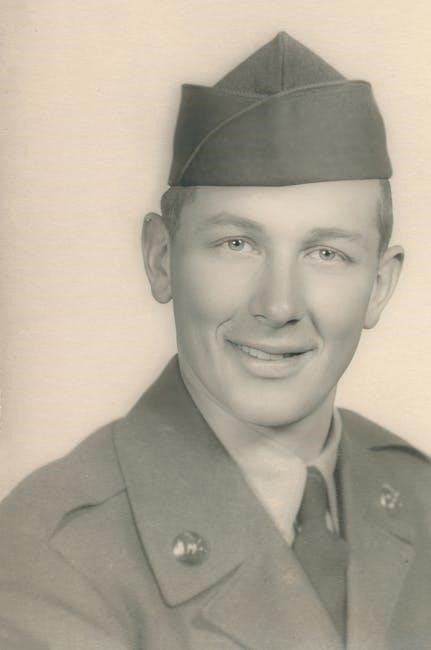
Roles and Responsibilities of Non-Commissioned Officers
NCOs are essential leaders, responsible for training, mentoring, and caring for soldiers. They ensure mission success by supervising tasks and upholding Army standards, guided by the NCO Creed.
2.1 Leadership and Mentorship
Leadership and mentorship are cornerstone responsibilities for NCOs, fostering growth and readiness within their teams. By setting clear expectations and leading by example, NCOs inspire soldiers to achieve excellence. Effective mentorship involves guiding soldiers through professional development, helping them navigate challenges, and preparing them for future roles. This supportive approach not only strengthens individual capabilities but also enhances unit cohesion and mission performance, aligning with the NCO Creed’s commitment to excellence.
2.2 Supervision and Care for Soldiers
Supervision and care for soldiers are vital NCO responsibilities, ensuring tasks are executed to standard and addressing welfare needs. NCOs oversee daily operations, provide constructive feedback, and foster a supportive environment. They prioritize soldier well-being, resolving personal and professional issues to maintain morale and readiness. This dedication reflects the NCO Creed, emphasizing commitment to troops and mission success, ensuring a cohesive and effective unit.
2.3 NCO Duties and Authority
NCOs are entrusted with specific duties and authority to lead, train, and care for soldiers. They enforce standards, make informed decisions, and ensure mission execution. Their authority is formally delegated, enabling them to act in the absence of officers. FM 7-22.7 details these responsibilities, emphasizing leadership, accountability, and the NCO Creed’s principles. This authority is essential for maintaining discipline and achieving unit goals, reflecting the NCO’s critical role as a bridge between officers and enlisted personnel.

Professional Development for NCOs
NCO professional development includes training, education, and career advancement opportunities. Resources like FM 7-22.7 and specialized programs enhance leadership skills, ensuring NCOs remain effective leaders and mentors.
3.1 Training Circulars and FM 7-22.7
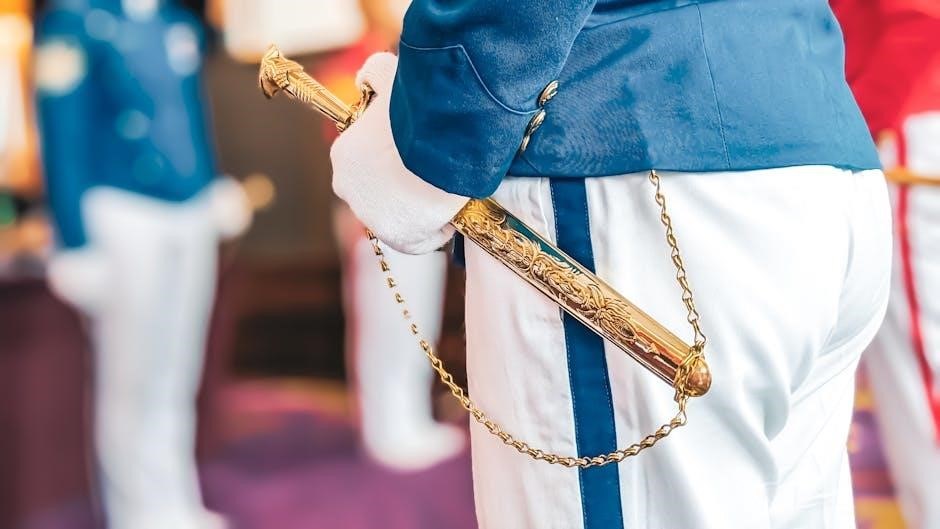
Training Circulars (TCs) and FM 7-22.7 are essential for NCO development, providing detailed guidance on leadership, supervision, and soldier care. These resources ensure NCOs understand their roles, responsibilities, and authority, aligning their actions with Army standards. They also outline professional development opportunities, career advancement strategies, and training requirements, serving as a comprehensive toolkit for NCO success and adaptability in modern military operations.
3.2 Education and Career Advancement
Education and career advancement are critical for NCOs to excel in leadership roles. The Army offers various programs, including formal education and specialized courses, to enhance skills and knowledge. These opportunities ensure NCOs remain competitive for promotions and capable of meeting evolving challenges. Professional Military Education (PME) and leadership development programs are integral to this process, fostering a well-rounded and adaptive NCO Corps. Continuous learning aligns with the Army’s strategy to build a proficient and forward-thinking leadership force.
3.3 NCO Writing Excellence Program
The NCO Writing Excellence Program is a quarterly competition designed to enhance writing skills and stimulate discussions on key issues affecting noncommissioned officers. This initiative encourages NCOs to share insights and experiences, fostering a culture of professional development and communication excellence. By participating, NCOs can refine their ability to articulate ideas clearly and contribute to the broader dialogue within the Army. The program supports the development of well-rounded leaders capable of addressing complex challenges effectively.
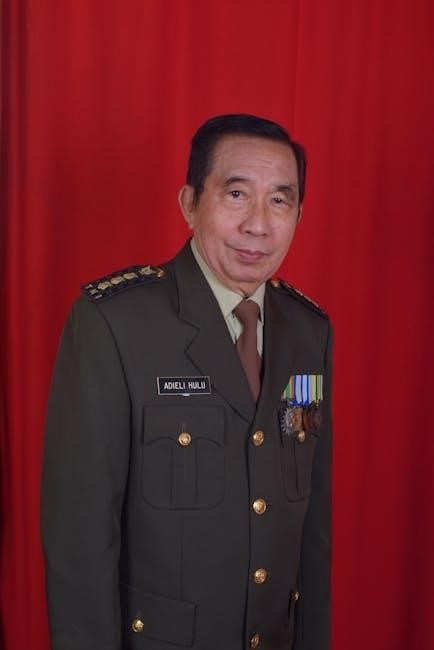
Challenges and Opportunities for Modern NCOs
Modern NCOs face evolving challenges, including adapting to advanced technologies and leading in dynamic operational environments, while leveraging opportunities to enhance leadership and mission readiness.
4.1 Adapting to Modern Warfare
Modern warfare demands NCOs to lead in complex, dynamic environments, integrating advanced technologies and strategic initiatives. The NCO Guide emphasizes adaptability, ensuring NCOs are equipped to address emerging challenges and leverage new capabilities. This includes mastering asymmetric warfare, cyber operations, and multinational collaboration, while maintaining core leadership principles. The evolution of warfare necessitates NCOs to think critically and innovate, ensuring the Army remains competitive and effective in global conflicts.
4.2 The Role of NCOs in Retention and Promotion
NCOs play a pivotal role in soldier retention and promotion by fostering leadership, mentorship, and career development. They ensure soldiers meet performance standards and are prepared for advancement. The NCO Creed and FM 7-22.7 emphasize their responsibility in identifying talent and guiding soldiers through the promotion process. Effective NCOs create a supportive environment, enhancing retention and fostering a competitive, skilled force. Their influence is critical in shaping the Army’s future leadership and maintaining unit cohesion and effectiveness.
The NCO Strategy and Future of the Corps
The NCO Strategy 2020-2025 outlines initiatives to modernize leadership, enhance professionalism, and strengthen the NCO Corps, ensuring it remains adaptable and relevant in future military operations.
5.1 NCO Strategy 2020-2025
The NCO Strategy 2020-2025 focuses on developing adaptive leaders, enhancing professional education, and modernizing training to meet future challenges. It emphasizes leadership development, critical thinking, and technical expertise, ensuring NCOs are prepared for evolving operational demands. The strategy also prioritizes fostering a culture of innovation and continuous improvement, enabling the NCO Corps to remain the backbone of the Army.
5.2 Building a Strong NCO Corps
Building a strong NCO Corps requires fostering a culture of excellence, professionalism, and continuous improvement. The NCO Creed and FM 7-22.7 serve as foundational guides, emphasizing leadership, mentorship, and soldier development. Professional development through education and training ensures NCOs are equipped to lead effectively. Recognizing and rewarding outstanding performance reinforces high standards, while fostering a culture of innovation and adaptability ensures the NCO Corps remains the backbone of the Army, capable of meeting current and future challenges.
Promotion and Career Guidance
Promotion boards and professional military education (PME) are critical for NCO career advancement. The Army emphasizes continuous learning and leadership development to prepare NCOs for higher ranks.
6.1 Promotion Boards and Requirements
Promotion boards evaluate NCOs based on performance, leadership potential, and adherence to Army standards. Eligibility criteria include time-in-grade, time-in-service, and completion of required training. Soldiers must demonstrate mastery of their Military Occupational Specialty (MOS) and leadership skills. Promotion boards assess individual records, performance evaluations, and recommendations. NCOs must meet specific thresholds in fitness, education, and professional development to qualify. The process ensures only the most capable and dedicated NCOs advance, maintaining the Army’s leadership excellence.
6.2 Professional Military Education (PME)
Professional Military Education (PME) is essential for NCOs to enhance leadership, tactical, and technical skills. Structured courses provide foundational knowledge, enabling NCOs to excel in their roles. PME ensures NCOs understand their responsibilities, fostering effective decision-making and mission accomplishment. It equips them with the expertise to lead, train, and care for soldiers, while adapting to evolving challenges. PME is a cornerstone of NCO development, ensuring they remain competent and capable leaders in the Army.
The Army NCO Guide underscores the critical role of NCOs as the backbone of the Army, emphasizing leadership, mentorship, and mission success through dedicated service and professional growth.
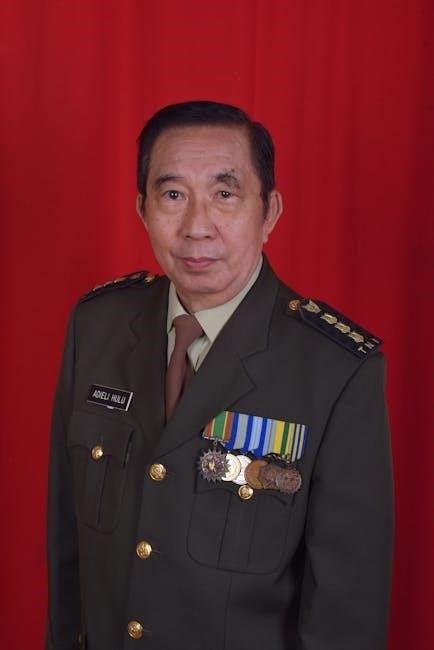
7.1 The Importance of NCOs in the Army
The Army’s NCOs are the backbone of the force, ensuring discipline, leading soldiers, and executing missions effectively. Their role in training, mentoring, and caring for troops is vital for unit success and military readiness.
7.2 Final Thoughts on Leadership and Success
Effective leadership is the cornerstone of NCO success, requiring mentorship, decision-making, and setting the example. NCOs must embrace the NCO Creed and strive for excellence in all tasks. The NCO Strategy 2020-2025 underscores the importance of a strong, adaptive corps. Continuous professional development and fostering a culture of trust are essential. By upholding these principles, NCOs ensure mission accomplishment and inspire future leaders, solidifying their role as the Army’s backbone.